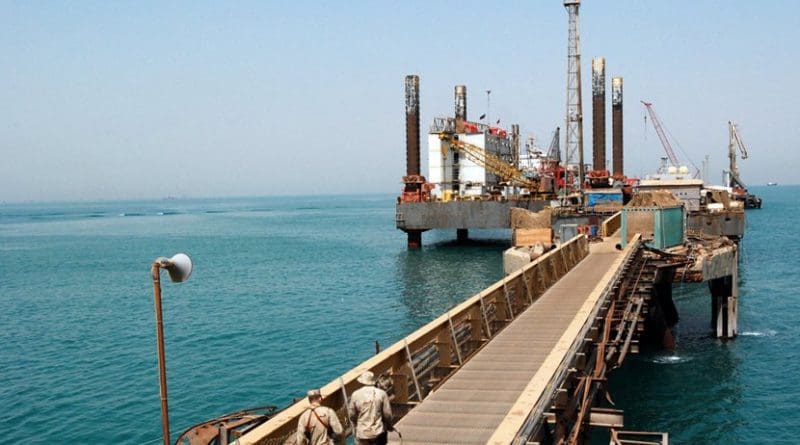Iraq Protests Threaten To ‘Paralyze’ Oil Industry In Basra
By Arab News
By Suadad Al-Salhy
Thousands of protesting tribesmen in southern Iraq have threatened to “paralyze” oil production if the hundreds of companies running the oil fields fail to employ them.
Tensions in Basra escalated after police opened fire to disperse protesters who had blocked the road leading to West Qurna, home of the largest oil fields in Iraq, on Sunday.
One demonstrator was killed and three wounded, medics and police said.
Security has been stepped up and international oil companies have moved senior staff members amid fears that the protests could escalate into rioting.
Several influential tribes, including Albu-Mansour, the tribe of the protester who died, demanded police hand over the officer who fired the fatal shot, and the commander who ordered him to shoot, or to prosecute them.
As the Tuesday deadline approached, thousands more tribesmen joined the protest to block the road. Most oil company employees operating in West Qurna were not able to reach their work, sources told Arab News.
On Tuesday tribal leaders in Basra called on the oil companies to dismiss all staff not born in the area, including foreigners and Iraqis, and replace them with young workers from Basra.
Iraqi security forces in the city have been on high alert and dozens of additional troops have been deployed in the region “to control the consequences,” a police officer told Arab News.
The protesters have been demanding that at least 80 percent of the jobs offered by the oil companies should be guaranteed to the people of Basra. They are also calling for improvements to basic services in the city, such as the water supply which has become highly saline in recent years due to a drop in river levels.
“We want to force the government to listen to our demands and respond to them,” one of the demonstration organizers told Arab News. “We will paralyze the movement of oil companies.”

